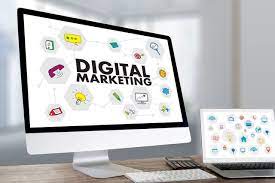In today’s digital-first world, organizations are expected to deliver seamless, personalized, and engaging experiences across multiple channels. To achieve this, businesses rely on Content Management Systems (CMS). However, with a wide range of CMS platforms available—each promising unique advantages—the real challenge lies in choosing the right one that aligns with your goals.
Selecting the right CMS solution is not just a technology decision; it is a strategic move that can make or break your digital transformation journey. From creating a robust CMS content strategy to building a clear CMS implementation project plan, every step plays a vital role in ensuring long-term success.
This guide will walk you through the key considerations, strategies, and future trends you should keep in mind while evaluating a CMS for your organization.
Why the Right CMS Matters
A CMS platform serves as the backbone of your digital ecosystem. It allows you to:
-
Create and manage digital content with ease.
-
Support omnichannel publishing (web, mobile, IoT, AR/VR).
-
Enable collaboration between marketing, design, and IT teams.
-
Scale your digital presence as your business grows.
The right CMS services can transform your online presence into a revenue-generating channel while reducing operational bottlenecks. On the other hand, choosing the wrong platform can lead to inefficiencies, high costs, and missed opportunities.
Step 1: Define Your CMS Strategy
Before jumping into vendor comparisons, organizations must first define a CMS strategy. This ensures your CMS aligns with business goals rather than being just another IT tool.
Ask yourself these questions:
-
Who are the primary users of the CMS? Marketing teams, developers, or both?
-
What type of content will you manage—blogs, product catalogs, multimedia assets, or all of these?
-
Which distribution channels matter most—website, mobile apps, social platforms, or digital kiosks?
-
Do you need advanced personalization and AI-driven features?
This clarity will help you decide between headless vs traditional CMS models. A traditional CMS offers an all-in-one solution where content creation, management, and delivery are tightly integrated. A headless CMS, however, provides flexibility by decoupling the content layer from the presentation layer—ideal for organizations aiming for omnichannel experiences.
Step 2: Build a CMS Implementation Project Plan
Once your strategy is clear, the next step is to create a well-structured CMS implementation project plan. This ensures smooth execution and minimizes risks.
Key elements of a successful project plan include:
-
Integration needs: Ensure your CMS can seamlessly integrate with CRM, ERP, analytics, and marketing automation tools.
-
Scalability: Choose a CMS that grows with your business instead of requiring frequent migrations.
-
Security: Cybersecurity is non-negotiable. Opt for a platform with advanced security features.
-
Compliance: Ensure your CMS complies with regulations like GDPR or HIPAA if applicable.
-
Localization: For global businesses, multilingual and multi-site management are critical.
By working with experts offering cms implementation services, you can avoid common pitfalls and accelerate the adoption process.
Step 3: Consider Usability and Flexibility
User experience is equally important when selecting a CMS. The best CMS 2025 platforms focus on intuitive interfaces and drag-and-drop editors that empower non-technical users.
Some questions to evaluate usability:
-
Can marketers publish content without depending on developers?
-
Does the CMS provide templates and workflows for faster content delivery?
-
How easy is it to update design and branding elements?
For startups or small enterprises, a cms solution for small businesses ensures cost-effectiveness while still offering flexibility. For larger enterprises, a headless, composable, and cloud-native CMS provides long-term adaptability.
Step 4: Align CMS with Digital Transformation Goals
A CMS is more than just a publishing tool—it should act as a driver for your digital transformation strategy. Look for cms for digital transformation features like:
-
AI-powered personalization and content recommendations.
-
Omnichannel publishing across devices, apps, and wearables.
-
Cloud-native architecture for agility and scalability.
-
Advanced analytics for data-driven decision-making.
-
API-first integration to connect with MarTech and commerce tools.
A future-ready CMS not only supports your current needs but also prepares your organization for innovations like AR/VR, IoT, and AI-powered automation.
Step 5: Choose the Right Implementation Partner
Even the best CMS platform can fail if not implemented correctly. Knowing how to implement CMS requires both technical expertise and strategic vision. A reliable partner offering CMS development services can:
-
Customize the CMS to your business needs.
-
Migrate content securely from legacy systems.
-
Provide training and ongoing support for teams.
-
Ensure faster go-live with minimal downtime.
Working with an experienced partner ensures your cms implementation aligns perfectly with business objectives.
Best CMS 2025 – What to Expect
As technology evolves, so do CMS platforms. The best CMS 2025 will focus on:
-
Headless & Composable CMS: For ultimate flexibility and future-readiness.
-
AI-driven automation: From content creation to personalization.
-
Low-code/No-code features: Allowing faster implementation without heavy technical dependency.
-
Enhanced security: With built-in compliance and advanced threat detection.
-
Cloud-native scalability: To adapt to fluctuating user demands seamlessly.
This evolution reflects the growing need for businesses to remain agile in an ever-changing digital landscape.
Common Mistakes to Avoid in CMS Selection
While organizations are eager to adopt modern CMS solutions, many fall into these traps:
-
Choosing based only on cost without evaluating long-term scalability.
-
Overlooking the importance of a cms content strategy.
-
Ignoring the difference between headless vs traditional CMS and choosing the wrong fit.
-
Rushing into implementation without a structured cms implementation project plan.
-
Not investing in expert cms implementation services for smooth adoption.
Avoiding these mistakes will save both time and money while ensuring successful outcomes.
Conclusion
Choosing the right CMS platform is a crucial step toward building a future-proof digital presence. It’s not about picking the most popular tool, but about aligning your choice with business objectives, customer needs, and growth ambitions. By creating a clear CMS strategy, preparing a detailed cms implementation project plan, and working with expert partners in CMS development services, you can ensure your investment delivers long-term value.
Whether you are a small enterprise seeking a cost-efficient cms solution for small businesses, or a large organization aiming for a future-ready CMS to drive digital transformation, the right CMS will empower your teams, enhance customer engagement, and accelerate growth.
If you’re looking for expert guidance and tailored CMS services, connect with TECHVED Consulting—your trusted partner for end-to-end CMS implementation services and future-ready digital transformation solutions.




